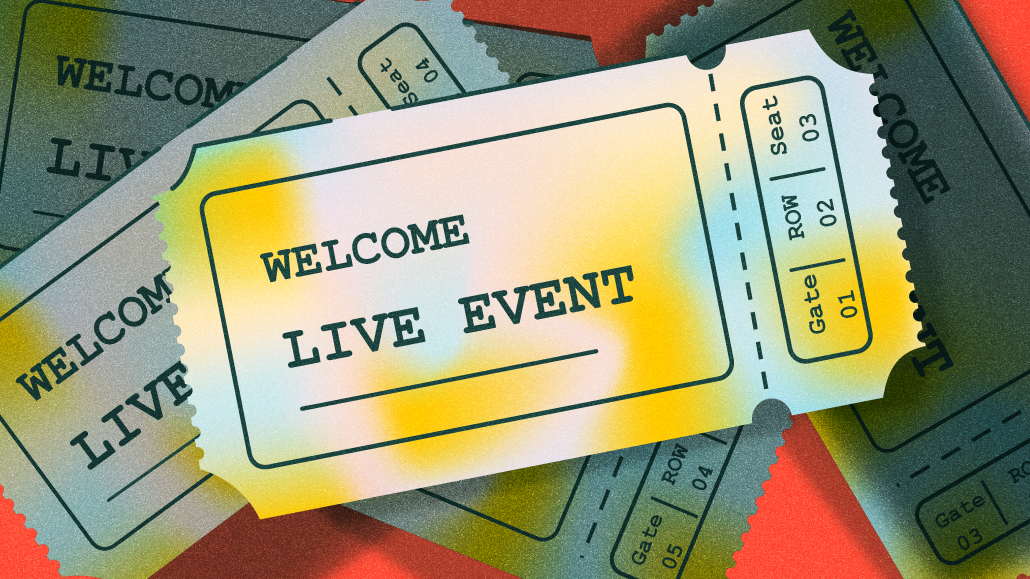Secure your place at the Digiday Media Buying Summit in Nashville, March 2-4
Gaming’s rise at San Diego Comic-Con reflects a broader cultural ascendance

As gaming continues to make inroads into culture, evidence of the medium’s ascendance is on full display at this weekend’s San Diego Comic-Con.
The United States’ largest annual culture convention is going down this weekend, July 25–28, at the San Diego Convention Center. After the Covid-19 pandemic and Hollywood strikes got in the way of recent iterations of the event, organizers anticipate that this will be the most active Comic-Con since 2019, with over 130,000 attendees over the four days of the convention.
This year, many of San Diego Comic-Con’s attendees will be gamers. Forty-eight percent have expressed an interest in games, making the medium the third-most popular entertainment format among event attendees, after movies and television shows, according to data shared by YouGov. (San Diego Comic-Con did not respond to a request for comment for this story.)
As video games rapidly overtake comics as Hollywood’s favorite source of adaptable intellectual property, game developers and publishers have taken note of the increased gamer presence at San Diego Comic-Con. For instance, Supercell, the publisher of the wildly popular mobile games “Brawl Stars” and “Clash of Clans,” is running an activation at the event for the first time this year — a “Bathroom Battlestation” featuring Clash-themed public restroom facilities — after prioritizing more explicitly gaming-focused events in years past.
“At Supercell, over the past year, we’ve taken a hard look at these sacred cows that we have — these rules around the way we treat our games and our IPs. And one of those was staying super focused on just things that were related directly to the games themselves,” said Supercell creative lead Michael Gurman. “What we realized is that it’s not really servicing our fans if we don’t give them what we think they’ll really love, which is all these different experiences around the games — both products and long-form storytelling.”
Another gaming platform that has invested in a presence at Comic-Con this year is Neopets, which stressed the value of engaging with fans face-to-face at the convention.
“Part of our company’s community centric culture is to interact with our fans; we host AMAs all the time,” said Neopets CEO Dominic Law. “[San Diego Comic-Con] is the largest Con in the U.S., so it’s important for us to have a presence.”
Non-endemic brands that are looking to reach gamers have also keyed into the opportunity at San Diego Comic-Con. This year, for example, the U.S. Food and Drug Administration has partnered with Fandom for an anti-vaping campaign that includes both a mobile game and a massive in-person gaming activation at Comic-Con’s Petco Park Interactive Zone.
“San Diego Comic-Con is really the largest event of the year,” said Fandom CRO Jeremy Steinberg. “There’s a few others, between Summer Game Fest and the Game Awards — but this really is the biggest moment that a marketer can activate.”
The rise of gaming at San Diego Comic-Con is less the result of an intentional gaming push by the convention and more of a reflection of the broader cultural ascendance of gaming. Comic-Con is a culture convention. With gaming working its way to the heart of culture, it’s natural that the presence of the medium has risen at the event. For hardcore gamers, though, dedicated conventions such as Penny Arcade Expo or Game Developers Conference are arguably still more of a draw.
“There’s so much going on at Comic-Con — it is stimulation overload. I like comic books and I like movies and I like TV and books and video games, and all these things are happening at the same time,” said veteran gaming and esports communications consultant Adam Rosenberg, who has attended Comic-Con numerous times both as a civilian and an employee for gaming firms. “When I go to PAX, it’s a lot more like, ‘let me just focus on my video games.’”
More in Marketing

Digiday+ Research: Brand marketing will be the priority in 2026, after revenues fell short of expectations
Revenues fell short of marketers’ expectations in 2025. But they’ll be working with bigger budgets in 2026, and focusing on brand marketing.

ChatGPT enters the ad game. Now what?
OpenAI has begun testing ads in ChatGPT through premium brand partnerships, signaling a new phase in its monetization strategy.

Ad Tech Briefing: A mid-term report card
Despite earnings increases, stock prices are down demonstrating how the public markets are a cruel place.








